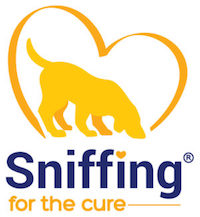Congrats: you got a new pup! Having a puppy can be super rewarding and fun, but can also be challenging at times. A huge part of raising your pup is making sure your puppy is healthy. Below I’ve compiled a list of the veterinary or health related concerns that will come up primarily during your pup’s first year!
1. Find a good vet.
Making sure you find a great veterinarian for your puppy is so important! Ask your friends who are dog owners if they have any recommendations, or look online. Find out if the office hours will fit your schedule and if they handle emergencies after hours (just in case!).
Most practices have multiple vets, but it is best to stick with one vet who knows your dog well. If your first vet makes you feel uncomfortable in any way, keep looking until you find a vet that is a good fit for both you and your pup.
2. Consider getting pet health insurance.
Emergencies happen, which is why it may be worth considering getting pet health insurance. Pet health insurance can ease the cost of veterinary care, especially if emergencies occur. Expect to spend at least several hundred dollars a year for routine veterinary care and set aside one to two thousand dollars for emergencies.
3. Make sure to get all vaccinations needed.
Vaccinations are a vital part of your puppy’s veterinary care and can help prevent serious diseases.
There are two types of vaccines: core and non-core. Core vaccines are those that have been recommended by the AVMA to be given to all dogs. These vaccinations for distemper, adenovirus-2, canine parvovirus-2, and rabies. Non-core vaccines include leptospirosis, Lyme disease, and Bordetella and are given to dogs based on their geographic locations. Your veterinarian will go over the non-core vaccines that are recommended for your pup and will let you know the vaccination schedule. Several boosters will be needed over the course of the first year as well to provide ideal immunity for your pup.
4. Have your vet deworm your puppy regularly.
Many puppies have intestinal parasites that they may have contracted from their mother before they are even born. Therefore, it’s super important to have your vet deworm your pup regularly and perform fecal exams to make sure that treatment is complete. If left untreated, intestinal parasites can cause anemia and weight loss, which can sometimes even be fatal. Remember: it’s better to be safe than sorry!
5. Start your pup on prophylaxis.
Another worm that your pup could contract is heartworm, or Dirofilaria immitis. Heartworm lives within the circulatory system and is spread by various mosquitoes, which is why it has become a serious endemic within the United States. The warming of our climate has led to climate mosquitoes staying active longer each year, so it is recommended that year-round heartworm prophylaxis is given to your puppy. The American Heartworm Society recommends that puppies start on prophylaxis no later than 8 weeks of age. Make sure to ask your vet more about this and if you have any more questions!
6. Prevent flea and tick infestations.
Preventing flea and tick infestations is far easier than treating them. Your vet can offer you a variety of topical products that can safely be applied to pups ages 8 weeks and older.
Some other things you can do to prevent flea and tick infestations is to keep your lawn short and keep your pup out of bushes and woody areas. Make sure to wash bedding and vacuum carpets regularly to remove any eggs and larvae.
7. Get your pup spayed or neutered.
Healthy puppies can be neutered as young as 8 weeks, but your vet will likely recommend to wait until your dog is 4-6 months old. Spaying should be performed before the first heat when possible.
8. Ask your vet about your pup’s diet and weight.
Pups 8 weeks and older should be fed a high quality puppy food. Follow your vet’s guidelines and label recommendations to determine how much to feed your puppy. Puppies should be bed three to four times a day until they are at least six months of age. Once they are around that age, you may decrease the feeding schedule to twice a day if needed. Make sure to regularly ask your vet if your puppy is at a healthy weight as well!
9. Look out for teething.
Puppies begin teething when they are around 3-8 weeks old and will have all of their permanent around 4-6 months old. Teething usually lasts a few weeks to a month. You’ll know when your puppy is teething because they will start chewing more.
When your puppy is teething, make sure to give your pup plenty of toys and put any hazard or toxic items out of reach.
10. Avoid emergencies by puppy proofing your home.
Puppy proofing your home is super important to ensure that you avoid any emergencies that could arise. Take a look around your home and identify any items that could be potential hazards for your puppy — this could include toxic household plants, cleaning supplies, and more. Consider using baby gates to block off access to certain areas of the house that you don’t want your puppy exploring. Make sure small items such as change, jewelry, and hair ties are kept out of reach to prevent accidental swallowing. Never leave your pup unsupervised and use a crate when no one is around to watch them!





No Comments